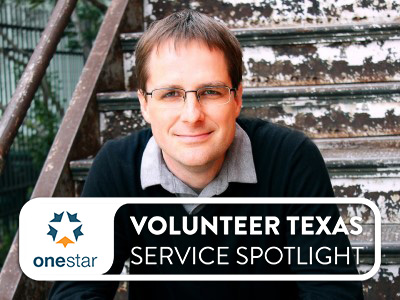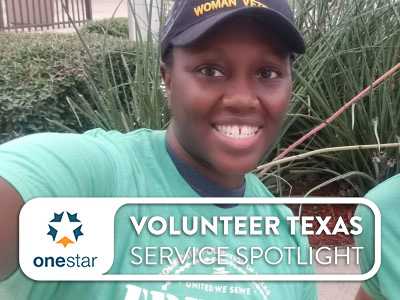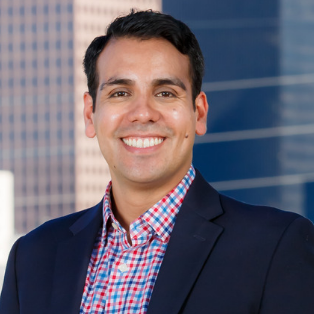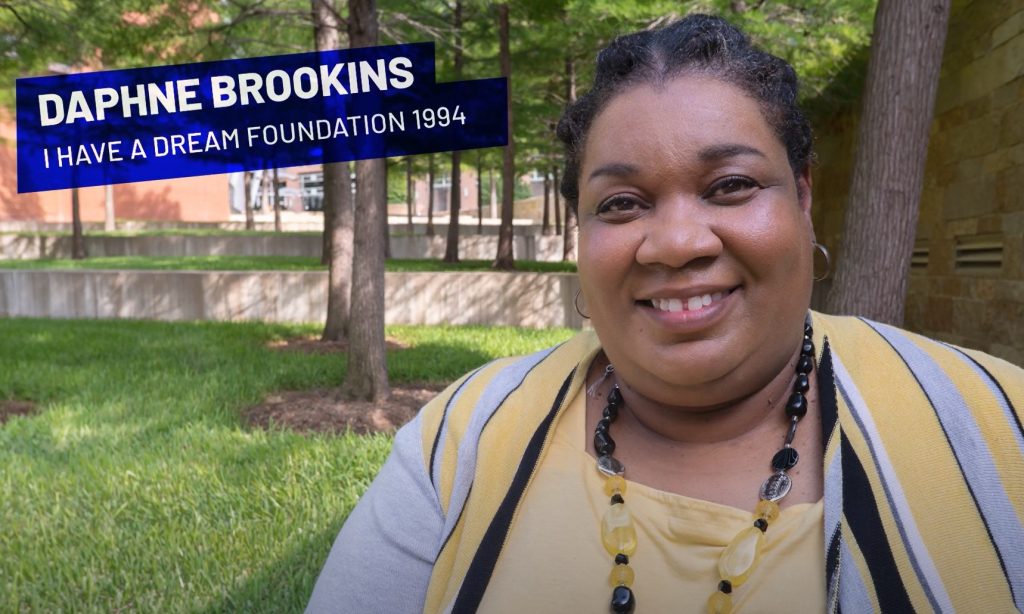
Good Samaritan pastor builds partnerships to help families on the road to self-sufficiency | Volunteer Texas Service Spotlight
Blake Jennings was a recipient of a 2020 Governor’s Volunteer Award. If you know an individual or organization making a significant impact in Texas communities through service and volunteering, you can nominate them for the 2021 Governor’s Volunteer Award here.
Pastor Blake Jennings noticed a need in 2015 when multiple single mothers in his College Station congregation came to him with vehicle problems. Blake and his wife Julie created a nonprofit called OnRamp that provides reliable transportation to people in need, setting them on the path to self-sufficiency and enabling them to care better for their families.
“We noticed that in the Brazos Valley, folks who lack reliable transportation end up struggling in a lot of ways. They have a difficult time getting and holding down employment. They have a difficult time getting themselves and their kids to education opportunities, to health care opportunities, to other services within the community. A lack of reliable transportation can be something that traps families in poverty for a long period of time,” Blake explained. “We saw that in our community and wanted to do something about it, so what OnRamp does is partner with other charities, school districts, healthcare providers, churches, and places of faith to identify individuals and families who are struggling towards self-sufficiency, but who lack reliable transportation, and we gift to them a reliable vehicle along with the first full year of repairs and maintenance.”
OnRamp’s impact has been substantial, donating 72 vehicles to date, and repairing approximately 30 more. OnRamp actively engages volunteers in both vehicle repair and client care and partners with more than two dozen local businesses and charitable organizations. Most recently, they gifted a single mother of four boys a Honda Odyssey minivan. One week later, one of her young sons was diagnosed with Type 1 diabetes, and the doctor’s immediate response was to send him to a specialist for treatment in Houston—an appointment that would have impossible to make without reliable transportation.
Blake spoke with OneStar about his volunteer journey and his motivations for serving others.
What inspires you to volunteer?
Being a pastor and coming from a faith-based background, so often we talk about the parable of the Good Samaritan, where you have a person coming to the aid of somebody who has been beaten and left for dead on the side of the road, or you have verses about somebody who has no food or clothing showing up to your door, and you help them. After preaching that for so many years, I realized no one is coming to my door and knocking on it, and I don’t drive down my neighborhood street and see a guy who has been beaten and abandoned. I know that happens in the world, but it is so easy to never see that in a suburban community in Texas. What motivated me was this feeling of I have to do something. There has to be people who are in that position. Maybe it’s not food that they need, but there have got to be some deep needs out there: people who have been abused or victimized that need help. I realized then that maybe the fact that I was an automotive engineer before I was a pastor wasn’t an accident—maybe there’s a reason that I have that background.
In our church, there was one single mom who brought me a car that she bought from a corner lot that was very shady. She had very limited funds and had poor credit rating, so she had to turn to a dealer who took incredible advantage of her. She has four kids, two of whom are struggling with disabilities, and she had no hope to get out of that. I realized that is my Good Samaritan moment: it’s through cars, and it is through helping people who been victimized or taken advantage of. This is my chance to live out the religion that I talk about. How do we put these beliefs into practice in suburban Texas? I think everybody has their particular gift that they are able to contribute to the community, and for me, it was through cars.
How do you build intentional community partnerships and inspire others to serve?
The primary way we rallied the community around the cause is to tell stories to make it tangible. Whether you’re talking about a person who might donate or a person who runs a business or a person who runs another charity that could partner with you, the human heart is driven by stories and by specific needs. It’s so easy for many of us to live our isolated lives in our suburban environment, but we don’t see the need. As long as we don’t see the need with our own eyes and it remains intangible, it is only an idea out there, and it’s very easy to ignore ideas. It’s very hard to ignore people and specific stories.
A big part of my role in leadership is to tell stories to people in ways that capture their hearts, so that they see how their unique set of skills and resources can make a tangible difference. I view myself as the networker. I’m the connector. When I’m speaking to people who are business owners in the automotive sector, a lot of them have a desire to contribute to their community, but how are they going to do that? I get to walk into your place of business and tell you a story that helps you to see how that radiator or that auto part that you’re going to offer us for a discount (or free) is going to make a tangible difference in the life of another person. If you can tell stories well in a way that resonates with the person’s heart and their skills and their resources, then people get excited. They’re enthusiastic because they wanted to make a difference and didn’t know how, so they jump up and want to get involved. The real work to be done is that inspiration that comes through telling stories, so people understand this is a tangible way in my community to make a measurable difference. That’s what leadership looks like for me.
What benefits has volunteer service had in your life?
Volunteering has given me an opportunity to put principles I believe into action. As long as we live a life where the principles we care about are never put into action, they never really transform us, and in a sense, we’re living a hypocritical and unfulfilling life. Finding an opportunity to take principles I believe deeply in and actually put them into practice allows me to see those principles become true and feel like my life is making a difference.
It has also been a source of a lot of hope. In the last four years, it just feels like there has been so much division and anger and disagreement in our world and in politics and in society that can be overwhelming, and it can induce anxiety and hopelessness and lead us to apathy. I find when I put away the news for a minute and go do this volunteering, it reminds me that there is hope. Even if I can’t fix things at a national level, for this lady that we gave a minivan to, what she cares about is that she can now take her son to get treatment for his condition. That’s what matters. It has given me great hope to feel like, in the midst of so much I can’t control, it’s okay because I have a place where I can actually contribute, and it makes a difference.
What advice would you give to someone to encourage them to volunteer?
What you will find is your hope and your peace in life will grow, and it will provide something for you that you can’t find anywhere else. For somebody who is asking, “Why should I volunteer?” I would ask, “How happy are you with your life right now? Do you feel completely fulfilled?”
Most people will say, “I feel anxious. I feel angry. I feel frustrated. I feel apathetic.” Whatever it is, there is a solution to all of that: go serve. If you go serve, you are benefiting the people you’re serving, but it is also benefiting you because it’s giving you hope, and it’s giving you meaning that will help counterbalance all of those things that worry you and frustrate you and anger you. It gives you a reason to wake up in the morning. It gives you a hope that your life is contributing in some meaningful way. I think that most people who are self-aware are going to realize that if they’re not volunteering, there’s something missing, and it’s leading to a life that is just a fraction of what it could be.




